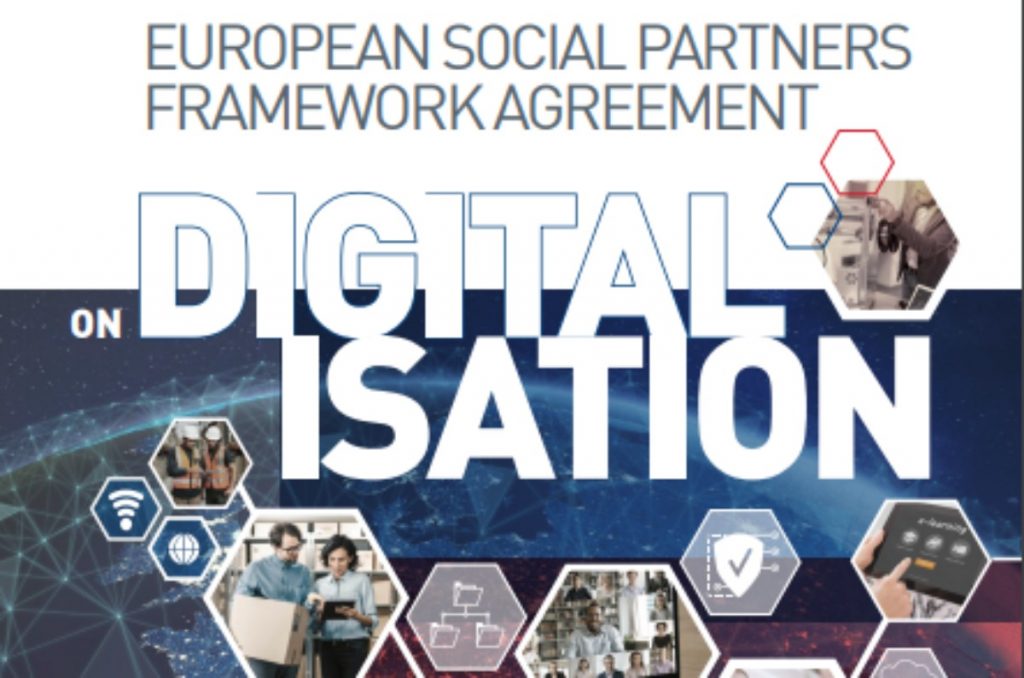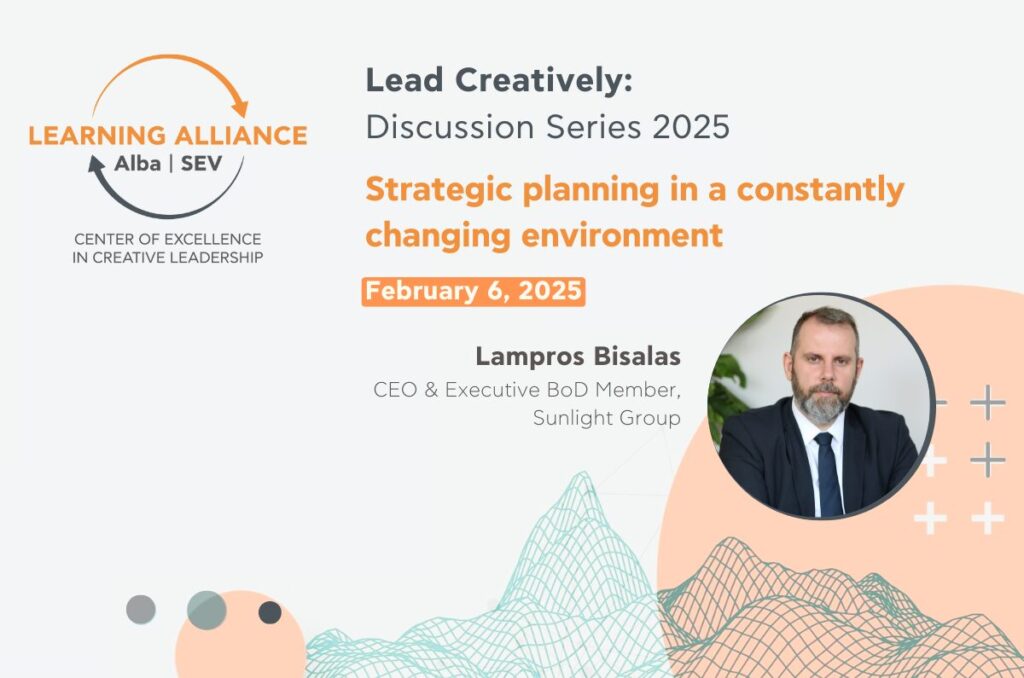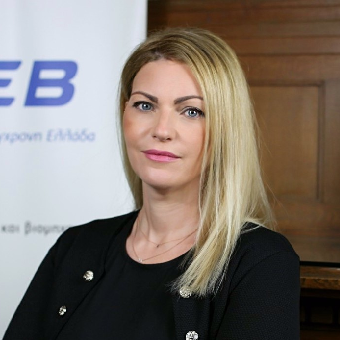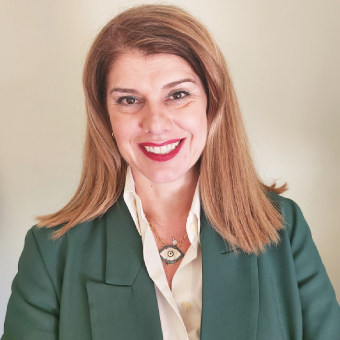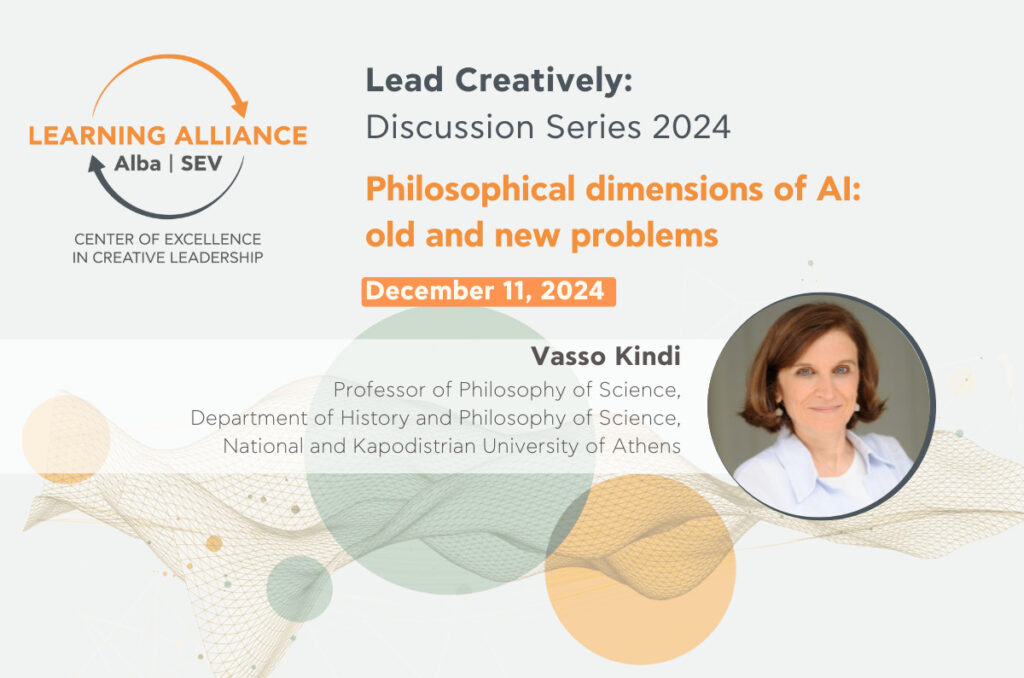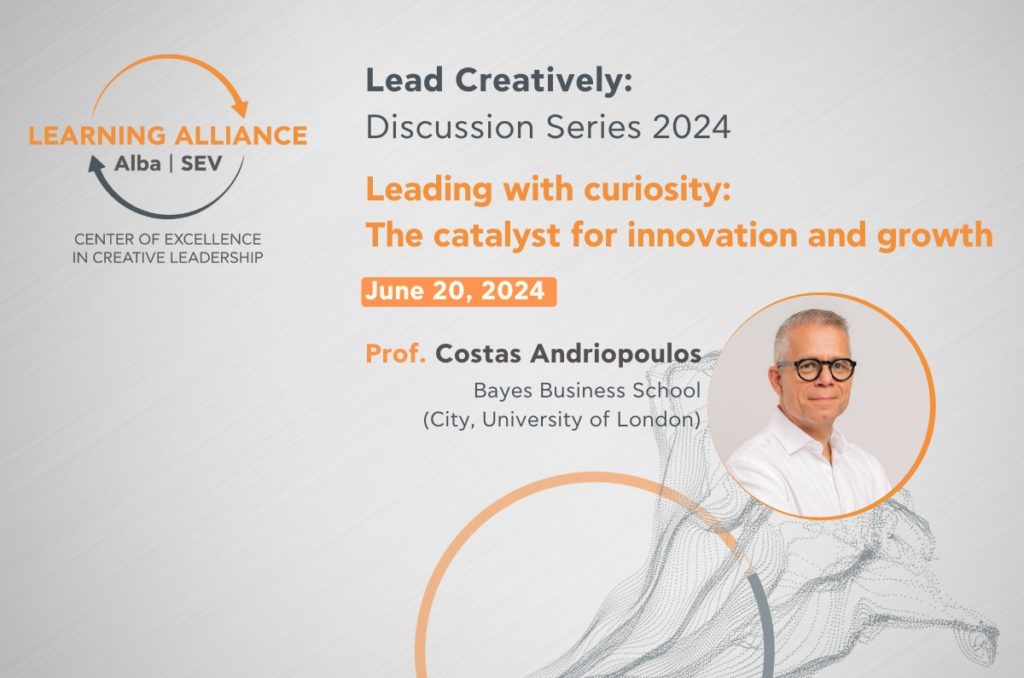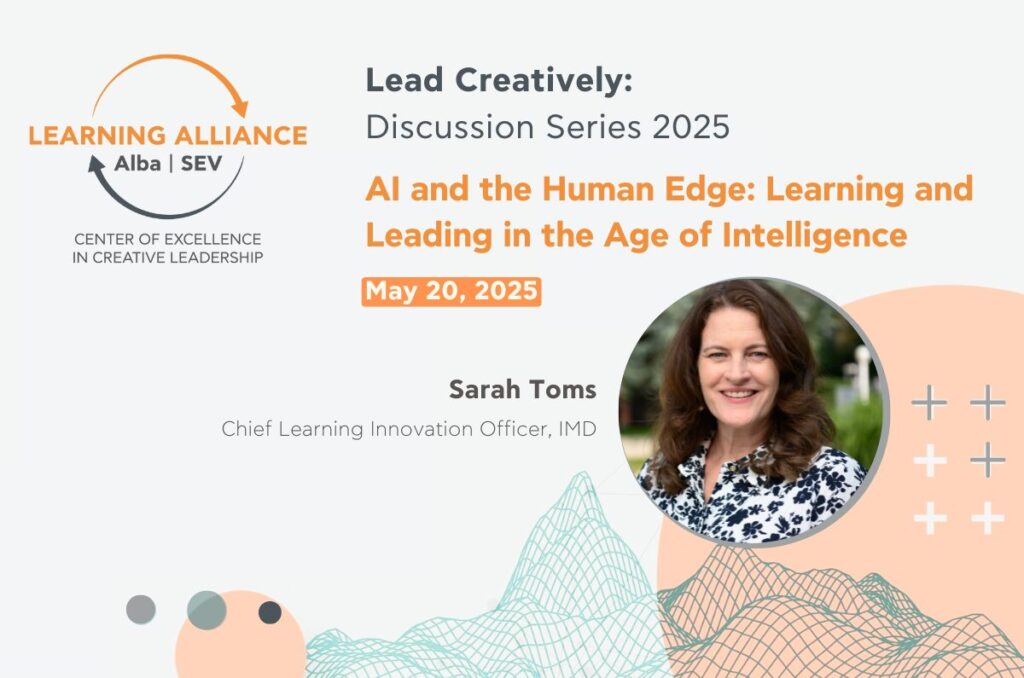
AI and the Human Edge: Learning and Leading in the Age of Intelligence
The SEV Center of Excellence in Creative Leadership invites you to the next event of the Leading Creatively Discussion Series, taking place on Tuesday, May 20, 2025, from 18:30 to 20:00 at Alba Graduate Business School (6–8 Xenias Str., Athens, 11528).
Our guest speaker will be Sarah E. Toms, Chief Learning Innovation Officer at IMD.
The event will be conducted in English only and held exclusively in person.
Please note: no livestream will be available.
Register here
The rise of generative AI has triggered a fundamental rethinking of how leaders learn, make decisions, and shape organizational culture. While the technology itself is rapidly evolving, the deeper challenge lies in how we transform human systems: the way we exercise judgment, build trust, and lead people. In this conversation with Sarah Toms, Chief Learning Innovation Officer at IMD, we will explore what it means to lead when intelligence is no longer confined to people. AI is increasingly embedded not just in operations, but in the everyday routines through which organizations and individuals learn and adapt. From personalized learning paths and executive coaching bots to training role-plays and AI-augmented decision-making, the scope, scale and essence of leadership development is shifting fast. At the same time, this transformation raises more fundamental questions: How do we ensure that organizations don’t become only more efficient, but also more humane? How can AI amplify ethical awareness, emotional intelligence, and creativity—rather than displace them? What new skills are needed and what is the role of specialist expertise? This conversation will address the present state of the art as well as the medium- and long-term implications of AI for leadership, learning, and organizational transformation. Join us in a discussion on moving beyond AI as a tool—and toward AI as a force reshaping how we learn, grow, and lead.
About the speaker
Sarah E. Toms is Chief Learning Innovation Officer at IMD where she leads the Learning Innovation and AI strategy, and former executive director and co-founder of Wharton Interactive. She is a demonstrated thought leader in the educational technology field, fueled by a passion to find and develop innovative ways to make every learning environment active, engaging, more meaningful, and learner-centered. She has spent more than twenty years as a leader in the technology sphere, and was an entrepreneur for more than a decade. In addition, she is coauthor with Peter Fader of The Customer Centricity Playbook.

